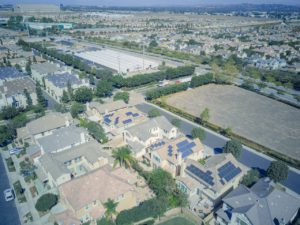In the realm of sustainable construction, the evolution of building materials has taken a significant turn towards eco-friendly practices. One such innovation making waves in the construction industry is the development of carbon-neutral bricks. These bricks are revolutionizing traditional brick-making processes by significantly reducing carbon emissions and environmental impact. Let’s delve into the story of carbon-neutral bricks and how brickmakers lead the charge towards a greener future.
Understanding Carbon Neutral Bricks
Carbon neutral bricks are produced using manufacturing processes that aim to offset or eliminate carbon emissions associated with their production. Traditional brick-making methods often involve high-energy consumption and carbon dioxide (CO2) emissions, primarily from firing clay bricks in kilns fueled by fossil fuels. In contrast, carbon neutral bricks focus on minimizing these emissions through innovative technologies and sustainable practices.
The Journey to Carbon Neutrality
The journey towards carbon neutrality in brick production involves adopting alternative materials and manufacturing techniques. Brick makers are exploring various approaches, including:
– Recycled Materials: Utilizing recycled aggregates, such as crushed bricks or industrial by-products, to reduce the reliance on virgin raw materials.
– Low-Carbon Binders: Employing alternative binders like geopolymers or lime-based binders that require lower firing temperatures and emit less CO2 during production.
– Renewable Energy Sources: Transitioning towards renewable energy sources like solar or biomass for kiln operations to reduce greenhouse gas emissions.
These sustainable practices minimize environmental impact and contribute to a more circular economy within the construction sector.
Benefits of Carbon Neutral Bricks
The adoption of carbon neutral bricks offers several benefits to both the environment and the construction industry:
- Reduced Carbon Footprint: Carbon neutral bricks contribute to overall climate mitigation efforts by minimising or offsetting carbon emissions.
- Energy Efficiency: Alternative manufacturing processes often require less energy, leading to lower operational costs and resource conservation.
- Waste Reduction: Incorporating recycled materials reduces landfill waste and promotes a circular economy.
- Market Demand: Increasing sustainability awareness drives market demand for eco-friendly building materials, positioning carbon neutral bricks as a preferred choice for environmentally conscious developers and builders.
 Innovations in BrickMaking
Innovations in BrickMaking
Brick makers are at the forefront of innovation, developing new techniques and technologies to achieve carbon neutrality without compromising structural integrity or durability. For instance:
– Bio-bricks: Some companies are experimenting with bio-bricks made from agricultural waste or mycelium (fungus) that can biodegrade at the end of their lifespan.
Carbon Capture: Research is underway to explore carbon capture and utilization technologies that can capture CO2 emissions from brick kilns and convert them into useful products.
These innovations highlight the adaptability and creativity within the brick-making industry to address sustainability challenges head-on.
The Role of Brick Makers in Sustainability
Brick makers play a pivotal role in advancing sustainability within the construction sector. By embracing carbon neutral practices, they set a precedent for other industries to follow suit. Collaboration among brick manufacturers, researchers, policymakers, and construction professionals is essential to accelerate the adoption of carbon neutral bricks and drive systemic change towards greener construction practices.
Looking Towards the Future
As the demand for sustainable building materials continues to rise, the future of carbon-neutral bricks appears promising. Brick makers’ ongoing commitment to innovation and collaboration underscores a collective effort to achieve carbon neutrality in the built environment.
Challenges and Roadblocks
Despite promising carbon neutral brick production advancements, several challenges and roadblocks remain. One of the primary challenges is the scalability of sustainable practices within the brick-making industry. Transitioning to alternative materials and processes on a large scale requires significant investment in research, development, and infrastructure. Additionally, cost considerations and market acceptance may present obstacles to the widespread adoption of carbon-neutral bricks.
Regulatory frameworks and policy support also play a crucial role in accelerating the transition towards sustainable brick manufacturing. Governments and regulatory bodies can incentivize carbon neutrality through subsidies, tax incentives, or emissions trading schemes, encouraging brick makers to invest in eco-friendly technologies and practices. Public awareness and consumer demand for sustainable products can further drive industry transformation and policy advocacy.
Collaborative Initiatives
Collaborative initiatives involving academia, industry stakeholders, and policymakers are essential to overcome these challenges. Research institutions can continue to innovate and develop cost-effective, scalable solutions for carbon neutral brick production. Industry associations and partnerships can facilitate knowledge-sharing, technology transfer, and capacity-building among brick makers. Moreover, public-private partnerships can leverage resources and expertise to drive regulatory reforms and market transformation towards sustainability.
The Importance of Consumer Awareness
Ultimately, the success of carbon neutral bricks hinges on consumer awareness and demand for sustainable building materials. Educating consumers about the environmental benefits of carbon neutral bricks and their role in mitigating climate change can drive market uptake and preference for eco-friendly products. By choosing carbon-neutral bricks, consumers contribute directly to the shift towards a more sustainable construction industry, empowering brickmakers to continue their journey towards carbon neutrality.
Carbon-neutral bricks represent a transformative innovation in sustainable construction, driven by the dedication and ingenuity of brickmakers worldwide. While challenges persist, collaborative efforts and growing consumer awareness pave the way for a greener future in the building sector. By embracing carbon neutrality and sustainable practices, brick makers are redefining their industry and demonstrating a commitment to environmental stewardship and responsible development. Together, we can build a more sustainable world, brick by carbon neutral brick.



